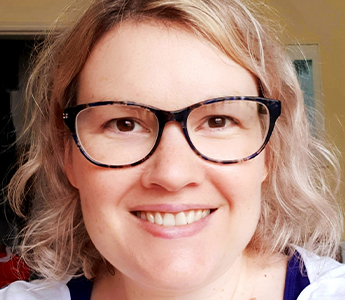
When Covid-19 arrived, the writing community searched for an alternative to in-person events. This led to widespread use of video conferencing, opening up the literary world to a much wider audience. As we move forward with Covid-19 and the writing community increasingly returns to in-person activities, are we in danger of losing a crucial insight?
As a person living with chronic health conditions, some of which I’ve had for over twenty years, I’m very familiar with missing out. I’ve never got used to it – it still frustrates me when I have to decline or drop out of an event – it’s just that it’s not a new situation when it happens.
Several of my conditions are unpredictable in nature, meaning that when invited or required to attend an event, I’ve often hesitated: sometimes unintentionally giving the impression that I’m not willing or keen, when I’ve actually been weighing up several variables. The widespread use of platforms like Zoom and Teams have made a vital difference to this.
I still have to weigh up how much I’ve already committed to, whether doing one more activity is likely to lead to pay-back health-wise, and consider other obstacles related to my conditions, but increasing use of video conferencing has meant my attendance is more likely to be possible. I can sometimes change in-person meetings to online ones if I become ill or do both a meeting and a reading in the same day and, if I’m not well enough to actively take part, attend some events from my bed (with the camera off).
The introduction of Zoom couldn’t have come at a better time for me, as I started working solely as a freelance writer and poet during the pandemic. When my debut poetry pamphlet was published in May, I was able to launch it online. I also feel more a part of the writing community than I did before too: not just someone who takes part occasionally. And the most amazing aspect of all this? I don’t feel like such an outsider to ‘normal’ life.
I’m fortunate in that – depending on various factors – when I’m well enough, I can attend in-person events, so to a certain extent I have a choice. Not everyone has. In an online survey* I conducted for this article a couple of weeks ago, I asked people whether they would prefer to return to in-person activities now or continue attending online; 60% of responders said they wanted the choice between the two.
Covid is still very much among us and many people are hesitant or unable to attend in-person because of this. While the Covid situation will hopefully improve, there is widespread concern about a return to pre-pandemic programming in the long-term, as purely in-person events would exclude many people once again.

This fear was echoed in many of the responses to my survey, including from those who are shielding, housebound, have certain disabilities or long-term health conditions. They were also expressed by people with caring responsibilities, those experiencing financial difficulty and responders living in locations where it is difficult to travel to events. The fact that online sessions effectively take place in your own home can also have, as several people mentioned in their comments, knock-on benefits to mental health.
Even those who stated that they would prefer to meet physically when Covid is not so prevalent – for reasons such as the opportunity to converse more freely, ease of making book sales at readings and the ‘buzz’ of being physically in the same room – also acknowledged that online access creates more opportunities in terms of making connections and the variety of activities available. Many highlighted how positive it’s been in the last couple of years to chat and listen to writers from all over the world: a benefit which I’m definitely experiencing through my virtual residency with Writers Victoria.
This is not to suggest that literary workshops, readings and conferences should only be held online. Just as the physical event can be inaccessible to some, the same applies to online for others. The latter, for example, assumes that everyone is comfortable with using technology, has the money to afford it and has a reliable internet connection. Some people find the experience fragmentary, making it more difficult to focus and connect, and screen fatigue can be an issue. Of course, actions need to be taken to ensure online sessions are as accessible as possible, such as asking attendees if they have any access requirements when booking and taking steps to implement these where possible, as well as providing regular breaks during sessions to avoid fatigue.
Whether we’re talking about online or in-person, it all comes down to one crucial point: inclusion. Due to the pandemic, we discovered a more extensive use for video conferencing within the writing community and the result was that a world previously limited to those who attended in-person could expand to include those who didn’t. As the literary industry continues to make the sharing of diverse and unrepresented voices a priority, surely the platforms through which writers learn, share and connect should reflect this as well?
Our experience during the pandemic has taught us that it’s possible to provide both physical and online activities, without great expense or effort, and for many members of the community this would simply mean more choice. But the argument for providing both cuts much deeper. As Vron McIntyre stated in her survey response: ‘Zoom has been an absolute lifeline’ for her and many other writers. Providing access to both formats is the only way to ensure everyone can be a part of our literary world.
Jo would like to thank everyone who contributed to the survey, for taking the time to share their views and experiences.
Join Jo, along with Melbourne poets Danny Silva Soberano and Gemma Mahadeo, for a special evening of poetry performance and conversation at the Yarra Plenty Regional Library’s Booklovers Festival this Thursday 25 November – book here.
Jo is hosting an online seminar for Writers Victoria, titled ‘Producing a Chapbook: From Poems to Publicity‘. She will be taking us through the process of publishing a chapbook from start to end – invaluable for anyone interested in publishing their own chapbook!
Jo Weston is a poet and writer from Nottingham, England. She is Virtual Writer in Residence for Writers Victoria through November 2021. Her debut poetry pamphlet – How not to multitask – is published by Wild Pressed Books. Find Jo on Twitter or Instagram or at her website: https://joweston1.wixsite.com/joweston

*Based on responses from 40 people. For free Survey Monkey accounts, access is limited to the results of the first 40 responders. More people were keen to contribute and comments sent separately to Jo were taken into consideration in the writing of this article (but not included in the 60% quoted here), regardless of whether they were one of the first 40 responders.
